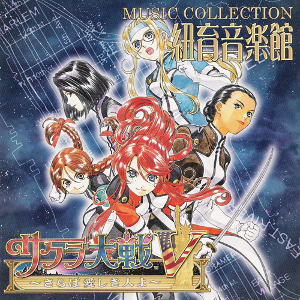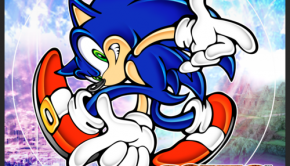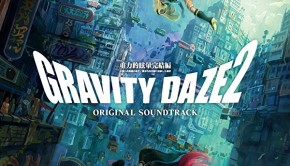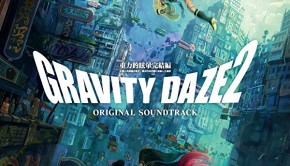Sakura Wars V Episode 0 Complete Music Collection
 |
Album Title: Sakura Wars V Episode 0 -Samurai Girl of the Wild West- Complete Music Collection |
| Record Label: Avex |
|
| Catalog No.: AVCA-22064 |
|
| Release Date: September 23, 2004 |
|
| Purchase: Buy Used Copy |
Overview
After a few years’ hiatus, the Sakura Wars (Sakura Taisen) series returned with Sakura Taisen V, and to sate fans’ appetites for another game in the series, this prologue was created, focusing on the cowgirl obsessed with Japanese culture, Gemini Sunrise. As per usual, composer Kohei Tanaka provided the music and series creator Ohji Hiroi the lyrics for the theme song.
Body
Quite different from the game which followed it, Episode 0 takes place against the landscape of the American west rather than New York City. So the Jazz which fits V so well would be out of place here (there is one track of it, though). In its place, Episode 0’s score features the sounds that one associates with Westerns and the wild west: folk song-like melodies, bluegrass fiddle, harmonica, and of course, guitar.
The soundtrack opens with the short version of the game’s theme song, “Samurai Soul.” At under a minute, it’s even shorter than usual. With its brash orchestration and primarily pentatonic melody, it evokes the open wild west and its folksong. Right at the end, the brass injects a fanfare from Mahler’s Das Lied von der Erde, (from the part where horses gallop past, so it’s a fitting quotation). The theme shows up a few times in instrumental form, sometimes as the main subject of a track, as in “Love, Transcending Time,” and other times in the form of a brief quotation, as in “My Texas.” At the end of the soundtrack are all of the karaoke and long versions of the song. The long version is arranged completely differently. Instead of orchestra, the backing has a western feel with its fiddle and guitar (and steel guitar) backing. On the whole, it’s not one of the series’ better songs, as the pentatonic tune feels somewhat restricted, but it has the right blend of sincerity and gleeful excess that characterizes the series in general.
In addition to the influences already mentioned, the soundtrack contains references to the style of Morricone’s The Good, the Bad and the Ugly soundtrack (in “Crucial Time, End of the Wild West”), and the main theme of Jerry Goldsmith’s Patton score (in “Reverser” and “American Spirit”). All of this adds up, of course, to an “American” sound. One highlight is “Deer Hunter.” It retains the electric guitar and piano ostinati that Tanaka uses so frequently, but it develops into an Elfman-esque waltz by the end, and it’s full of great details and unexpected shifts of mood.
But there are a number of tracks, such as “Life, Even if Spent,” which stick to Tanaka’s formulae. These orchestral tracks are merely decent to begin with (although there are exceptions) and the lifeless synth drains them of whatever interest they might have had. Worst of all, there’s no reason for them to be in this game over any other. There’s nothing particularly American sounding about them; they are nothing more than “Tanaka action/danger music,” and do not suit the game any more or less than any other music of the type would. Faring better, although still more in Tanaka’s general idiom than any other such music, are some of the more melancholy pieces. “Eden” moves wonderfully in waves of synth choir and harp, and although one can hear Tanaka’s style clearly throughout. The bitonal harmonies at the end, the consonant strings and harp off-set by interjections from the choir, are startling and refreshing.
At the end, the main theme of Episode 0, the series’s main theme, and the main theme of V are presented in instrumental form. The songs are as energetic as always, and longtime fans of the series will love to hear the theme one more time.
Summary
As with the Sakura Wars V soundtrack, Sakura Wars V Episode 0: Samurai Girl of the Wild West is better when dealing with smaller ensembles. Tanaka has a talent for orchestral music as well as songs and more intimate instrumental music, but it is not on display here. Unfortunately, the main theme song, presented here in a number of versions, is also not among the series’ best. The score has some highlights, but they are fewer than one might hope.
Do you agree with the review and score? Let us know in the comments below!
3
Posted on July 8, 2015 by Ben Schweitzer. Last modified on July 8, 2015.














